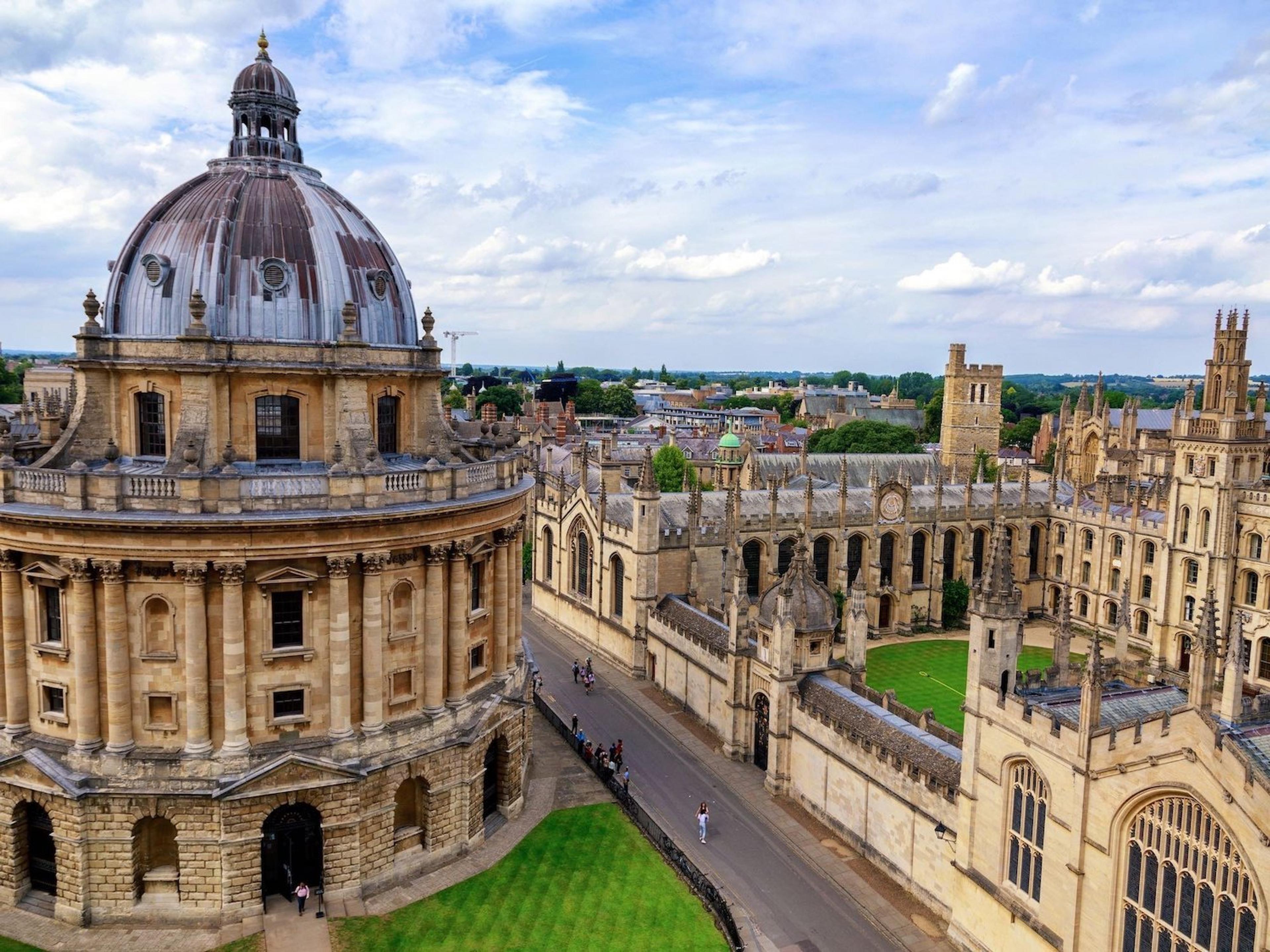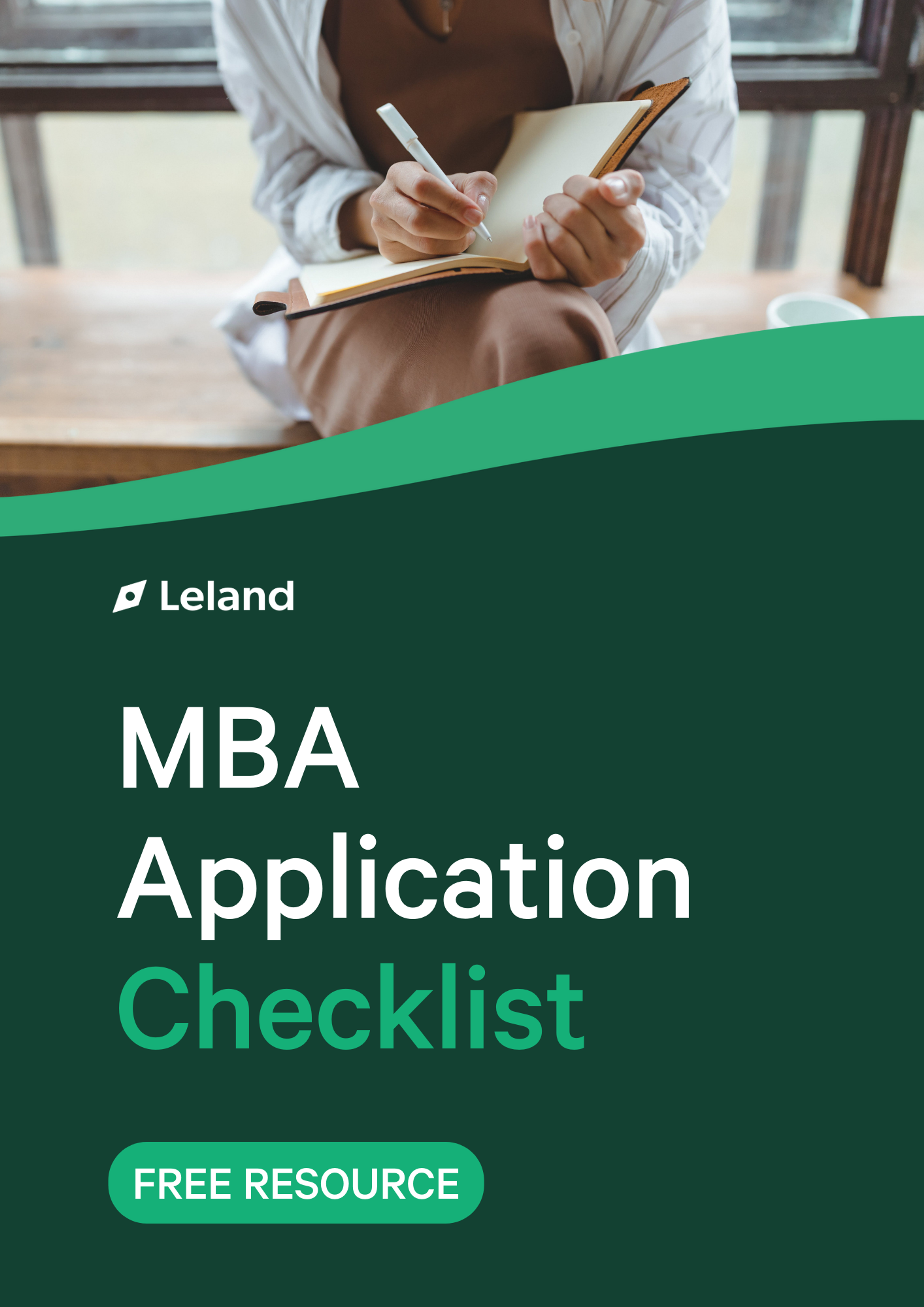
Table of Contents
Free Event

Featuring Melanie E.
How to Get a Head Start on Your MBA Application
Starting Wednesday, April 16
10:00 PM UTC · 60 minutes

Featuring Melanie E.
While the United States has many top business schools, some applicants may be looking for a different route to an MBA degree. One option is to go international. There are several highly-ranked business schools outside of the US that offer a different environment to their American counterparts. This article will outline the top 5 international business programs to give you an idea of their curriculum, strengths, and concentrations.

Customizable MBA Application Checklist
Access our free MBA checklist with everything you need to stay organized and additional expert resources.
1. INSEAD
INSEAD is one of the most well-known business schools outside of the United States. Its main campus is in Fontainebleu, France near Paris but it has other permanent campuses in Abu Dhabi, San Francisco, and Singapore. Its MBA program is accelerated and only 10 months long. There are two intakes, in January and August. Classes are taught exclusively in English and applicants whose native language is not English and who did not study in an English undergraduate institution must provide a certificate of English proficiency through the TOEFL, IELTS, or PTE.
Class Profile
- Class Size: 1000
- Average Age Range: 23-36
- Average Work Experience: 3-8 years
- Women: 38%
- Nationalities: 75+
- Average GMAT: 706
- Acceptance Rate: 31%
Tuition/Fees
- August 2022 Intake: €91,225
- January 2023 Intake: €92,575
Program Overview
The MBA program at INSEAD is split into five periods, each consisting of two months. During the third through fifth periods, students have the opportunity to take different electives, do a campus exchange, or complete an internship.
Period 1:
Financial Accounting, Financial Markets and Valuation, Introduction to Strategy, Organizational Behavior, Prices and Markets, and Uncertainty, Data, & Judgement.
Period 2:
Corporate Financial Policy, Leadership Communication Foundations, Managerial Accounting, Managing Customer Value, Organizational Behavior II, and Process & Operations Management
Period 3:
Ethics, Political Environment, Public Policy, Macroeconomics in the Global Economy, and 3 electives
Period 4:
4 Electives
Period 5:
Capstone course and 3 electives
2. IESE Business School at the University of Navarra
The IESE business school is based in Barcelona, Spain but also offers many overseas options, including campuses in Sao Paulo, Madrid, Munchen, and New York. The program begins in September and lasts either 15 or 19 months. Compared to other two-year MBA programs, IESE is relatively affordable at $104,339 for both years. It boasts a relatively small class size and was ranked the top MBA in the World for Corporate Social Responsibility in 2022 by the Financial Times.
Class Profile
- Class Size: 350
- Average Age Range: 29
- Average Work Experience: 5 years
- Women: 30%
- International Students: 85%
- Average GMAT: 670-680
- Acceptance Rate: 26%
Tuition/Fees
- Commitment Fee: €3,000 ($3348)
- Tuition Installment: €7,000 ($7,811)
- Year 1 Tuition: €36,750 ($41,010)
- Year 2 Tuition: €46,750 ($52,170)
- Total: €93,500 ($104,339)
Program Overview
The first year is set aside as an immersion into business fundamentals. It’s split into three terms and the curriculum includes 24 core courses that will help students cement their foundational knowledge and expand their network.
First-Year Courses:
- Analysis of Business Problems
- Capital Markets
- Communication
- Decision Analysis
- Financial Accounting
- Leadership
- Marketing Management
- Business Ethics
- Managerial Accounting
- Marketing Planning and Implementation
- Operational Finance
- Operations Management
- Competitive Strategy
- Corporate Finance
- Fundamentals of Entrepreneurial Management
- Global Economics
- International Management
- Operations Strategy
- Quantitative Methods for Management
- Transforming Organizations and Markets with ICTs
Over the summer, students in the 19-month program will be able to complete a corporate internship, social internship, or summer entrepreneurship experience. Students in the 15-month program will begin their second-year electives. In the second year, MBA candidates will choose their own path through a broad range of elective choices, an overseas module, or a global exchange program.
3. London Business School
The MBA program at the London Business School begins in August and lasts 15-21 months. At the center of London’s start-up and finance scene, LBS sets its students up for success in a global business career. 92% of its students accept a job within three months of graduation.
Class Profile
- Class Size: 511
- Average Work Experience: 5 years
- Women: 38%
- Nationalities: 67
- Average GMAT: 708
- Acceptance Rate: ~20-25%
Tuition/Fees
- Student Association Fee: €270 ($301)
- Tuition for the entire duration: €97,500 ($108,784)
- Commitment Fee: €3,000 ($3348)
- Reservation Fee: €6,000 ($6,694)
Program Overview
The first year at LBS is composed of a pre-term online preparation module and three terms. During this time, students will take courses on business fundamentals. In the second and third terms, there is some flexibility as to the classes offered.
Year 1
Pre-Program Modules
- Accounting
- Finance
- Statistics
Term 1
- Data Analytics for Managers
- Global Leadership Assessment for Managers
- Perspectives in Business Ethics
- Understanding General Management
- Accounting
- Finance I
- Macroeconomics for Managers
- Microeconomics for Managers Strategy
Term 2
- The Science of People in Organizations
- Marketing
- Operations Management
- + Core Electives
Term 3
Tailored Core: Students can choose which core electives they would like to take
Summer and Year 2:
Over the summer, students can choose to either complete an internship or attend the Entrepreneurship Summer School. The second year is completely customizable to LBS students’ professional and personal goals. Options include a global experiential course, international exchange, business project, internship, or capstone project. LBS offers different exit points: at 15, 18, or 21 months.
4. University of Cambridge Judge Business School
The MBA program at Cambridge is an intense, one-year experience. Judge is looking for students with at least two years of professional work experience, a bachelor’s degree, career progression, excellent English abilities, and a learning mindset. Cambridge is known for its environment of tutorial discussion and debate and this tradition extends to the business school.
Class Profile
- Class Size: 221
- Average Work Experience: 6 years
- Average Age: 30
- Median GMAT: 690
- Women: 43%
- Nationalities: 45
- Acceptance Rate: ~31-33%
Tuition/Fees
- Application Fee: £150 ($197)
- Tuition: £61,000 ($80,130)
- Approximate Living Fees: £15,250 ($20,032)
- Total: £76,400 ($100.359)
Program Overview
The MBA curriculum at Judge is academically rigorous, broad, and practical with an emphasis on teamwork. Courses are taught through a blend of seminars, lectures, small-group work, workshops, and experiential learning. Students must first take business fundamentals and will then have the ability to customize their schedules with electives and concentrations. The year is divided into four terms: Michaelmas (Oct-Dec), Lent (Jan-Mar), Easter (Apr-Jun), and Summer (Jun-Sep).
Michaelmas Term
Core Courses:
- Entrepreneurship
- Management Science
- Corporate Finance
- Financial Reporting and Analysis
- Microeconomics
- Organizational Behaviour & Leadership
- Organizations and Markets: Designs and Incentives
- Management Praxis I
This term also includes a Cambridge Venture Team Project.
Lent Term
Core Courses:
- Strategy
- Marketing
- Corporate Governance: Organisations
- Digital Business
- Management Praxis II
- Electives: three (chosen in Michaelmas Term)
During this term, students will complete a Global Consulting Team Project.
Easter Term
Core Courses:
- Macroeconomics
- Operations Management
- Business & Society
- Electives: three
In the Easter Term, Judge’s MBA students will choose one of ten different concentrations and complete a project in that concentration.
Summer Term
During these four months, students can choose to do one of the following: an individual project, work placement, or a research paper.
5. Oxford University Saïd School of Business
At Saïd, the MBA program begins in September and goes for a year. It exposes its students to a broad and global network, a diverse student group, thought leaders, many different career opportunities, and a rigorous academic curriculum. Saïd’s MBA program strives to teach both fundamental schools and their real-world applicability.
Class Profile
- Class Size: 350
- Average Work Experience: 5 years
- Average Age: 29
- Median GMAT: 690
- Women: 44%
- Nationalities: 71
- International Students: 94%
- Acceptance Rate: ~25%
Tuition/Fees
- Application Fee: £150 ($197)
- Tuition: £65,250 ($85,712)
- Deposit: £8,900 ($11,691)
- Approximate Living Fees: £1,215-1,755/month ($1,596-2,305)
Program Overview
The one-year MBA program at Oxford is academically intense and designed to empower its students to lead with purpose. Like Cambridge’s program, it is split into four terms: Michaelmas (Oct-Dec), Hilary (Jan-Mar), Trinity (Apr-Jun), and Summer (Jul-Aug) with a capstone project in September. The curriculum is composed of business fundamentals, electives, and experiential learning opportunities.
Michaelmas
- Module 1: Organizational Behavior, Technology & Operations Management Accounting
- Module 2: Analytics, Marketing, Business Finance, and an Integrative Module
Hilary
- Module 1: Firms and Markets, Strategy, GOTO (Oxford tutorial class)
- Module 2: Core+, Capitalism in Debate, Entrepreneurship, GOTO
Trinity
- Module 1: Two electives, Entrepreneurship, Integrative Module
- Module 2: Three electives
Summer
Over the summer, students can either take three electives and complete a strategic consulting project, or they can do an internship for credit. The final September is for completing a capstone, the last step towards acquiring the degree.
Where Can I Start?
Getting an MBA, or any advanced degree can be an arduous but rewarding experience. International MBAs offer students a fresh environment, broad network, and different opportunities. Whether an American or global MBA will suit you better depends on individual circumstances but this guide can help you get started. Read these articles for more information:


















